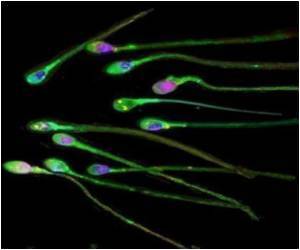
According to University of Granada study, combined exposure to organochlorides significantly alters semen quality in young people from South East Spain.
Having a low number of spermatozoa taking the levels established by the World Health Organization (WHO) as a reference can delay fertilization.
The starting point was the hypothesis that organochlorine pesticides cause alterations in semen quality parameters, as they alter homeostasis of male hipotalamus-hypophysis-gonads axis. The risk increases with exposure to different pesticides, even in low concentrations.
The results obtained showed that young people from South East Spain scores in a medium position -tending to the highest positions- with the semen quality reported in other European countries. Semen quality was measured after the total spermatic number (TSN) and the total sperm motility.
Semen quality has been found to be influenced by many factors as lifestyle -education level and job-, physical and biochemical parameters -obesity, sexual hormone levels, lipids in blood, etc- and environmental exposure.
Advertisement
While exposure to certain organochlorides proved to increase total spermatic number and total sperm motility levels, other pesticides have the adverse effects and are associated to a reduction in these levels. This might be due to the fact that some pesticides are considered to be slightly estrogenic endocrine disruptors -as it is the case of endosulfan sulphate, lindane and p,p-DDT-, while others combine their clearly antiadrogenic activity to a weak estrogenic activity -as it is the case of p,p-DDE and vinclozolin.
Advertisement













